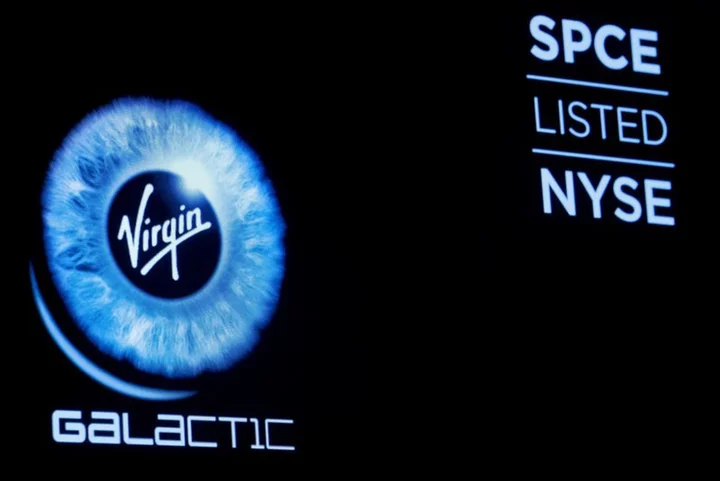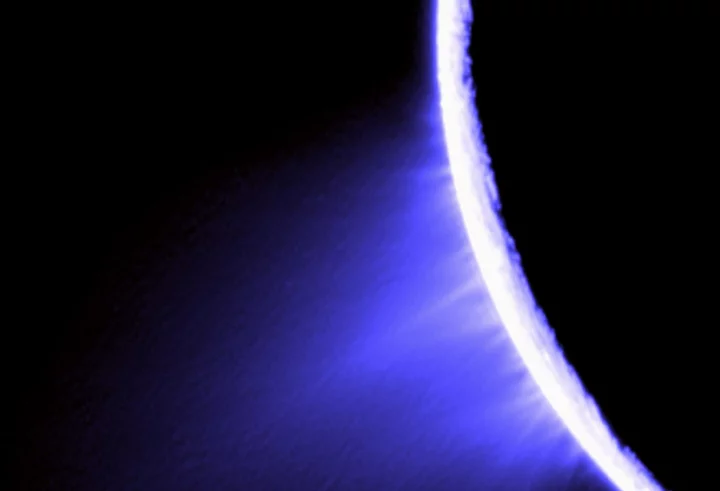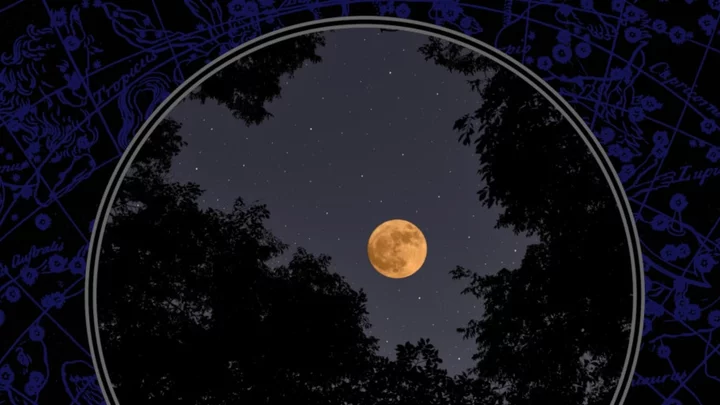
Virgin Galactic plans first commercial spaceflight in June, shares jump
Virgin Galactic Holdings, the space tourism firm founded by Richard Branson, said on Thursday its first commercial spaceflight
1970-01-01 08:00

Major finding on Saturn moon boosts hope for finding alien life nearby
Phosphates have been found on Saturn’s moon Enceladus, in a new breakthrough discovery that boosts hopes for finding alien life in our solar system. It is the first time phosphorus has been found in an ocean beyond those on Earth, and marks a major development in our understanding of other ocean worlds. Enceladus is one of the most likely hopes for finding nearby extraterrestrial life. While its outside is wrapped in an ice crust, underneath is a global ocean that could be a home for alien life. Some of that ocean spews up and out of the surface of Enceladus, in the form of vast plumes. Scientists have been able to examine those plumes to better understand the ocean itself, including in the new study. Researchers in the latest study used data from the Cassini mission – which flew around Saturn and Enceladus – to find out what the oceans are made up of. They not only found phosphorus, but data suggested that it could be there are concentrations at least 100 times higher than in Earth’s oceans. What’s more, modelling based on the new data suggests the same could be true for other ocean worlds, potentially boosting the chances of alien life there, too. Phosphorus is not in itself evidence of life. But on Earth, the presence of phosphorus compounds in water are crucial for biological activity, and so it is a key part of evaluating whether a distant world might support life. The work is described in a new paper, ‘Detection of phosphates originating from Enceladus’s ocean’, published in Nature. The breakthrough is just the latest in a series of findings from Enceladus. Recently, scientists found that the moon’s plumes were particularly vast, shooting out 20 times the length of the planet itself and with enough water to fill an olympic swimming pool in a couple of hours. Unlike the new phosphorus findings, which relied on the Cassini spacecraft sent by Nasa to Saturn, that work was conducted by the James Webb Space Telescope, which scientists hope will allow us to understand the distant moon in much more detail. Read More Watch: Strawberry moon lights up skies over UK Nasa invites public to sign ‘message in a bottle’ that will fly to Jupiter’s moon Watch as astronauts step out of ISS for latest spacewalk
1970-01-01 08:00

All dates for Premier League London derbies in 2023/24
Every Premier League fixture between London clubs throughout the 2023/24 season
1970-01-01 08:00

Ronda Rousey Wrestled Marshawn Lynch on Mars
VIDEO: Ronda Rousey versus Marshawn Lynch... on MARS?
1970-01-01 08:00

3 players the Warriors should target if they can trade up in the NBA Draft
NBA Draft rumors are buzzing about the Warriors trying to trade up. Who could they target if they move toward the top of the draft?The Warriors and their fans have been focused on the middle of the first round for weeks. But it might be time to start scouting a little higher. They hold the No. 1...
1970-01-01 08:00

Geminids meteor shower began life in a ‘violent catastrophe’, scientists say
The Geminids meteor shower began in a “violent catastrophe”, scientists have found. Every winter, the world is delighted by the meteor shower, which brings some of the most intense display of ‘shooting stars’. But that spectacle has been rivalled by its mystery. The Geminids are unusual in that most meteor showers are created when a comet leaves behind a tail of ice and dust – but the Geminids come from an asteroid, which do not usually leave behind a tail. Asteroids are chunks of rock and metal flying around in space. The Geminids appear to originate with one called 3200 Phaethon, which for an unexplained reason is affected by the Sun and leaves behind a stream across the night sky. “What’s really weird is that we know that 3200 Phaethon is an asteroid, but as it flies by the Sun, it seems to have some kind of temperature-driven activity,” said Jamey Szalay, research scholar at the Princeton University space physics laboratory and co-author on the paper. “Most asteroids don’t do that.” Attempts to solve that mystery have struggled in part because the meteor shower has only been observed from Earth. Now, however, researchers using Nasa’s Parker Solar Probe have been better able to examine the the Geminids. They suggest that a violent, catastrophic event gave rise to the meteor shower. That could have been a high-speed collision with another object in space, for instance, or a gaseous explosion. Some researchers have previously suggested that 3200 Phaethon might really be a comet, and that it lost its snow to leave behind just a rocky core that looks like an asteroid. But the new study makes clear that the origins of the meteor shower are much more dramatic than that. In an attempt to understand the meteor shower, researchers simulated three possible formation scenarios and then compared them with models based on observations from the Parker Solar Probe. That included a less violent scenario, a more violent one, and another that was in line with a comet. When they compared those scenarios with the actual observations, they found that the violent one was the most similar. That suggests that it was the result a collision or similar dramatic event. Researchers still do not know for sure what happened. But the new study helps narrow down the possibilities – as well as shedding more light on such events in space. The findings are published in a new article, ‘Formation, Structure, and Detectability of the Geminids Meteoroid Stream’, published in Planetary Science. Read More Watch live as astronauts step out of ISS for latest spacewalk Major finding boosts hope for finding alien life in our solar system Astronomers find rare planet circling two stars like Star Wars’s Tatooine
1970-01-01 08:00

Major finding on Saturn’s moon Enceladus boosts hope for finding alien life in our solar system
Phosphates have been found on Saturn’s moon Enceladus, in a new breakthrough discovery that boosts hopes for finding alien life in our solar system. It is the first time phosphorus has been found in an ocean beyond those on Earth, and marks a major development in our understanding of other ocean worlds. Enceladus is one of the most likely hopes for finding nearby extraterrestrial life. While its outside is wrapped in an ice crust, underneath is a global ocean that could be a home for alien life. Some of that ocean spews up and out of the surface of Enceladus, in the form of vast plumes. Scientists have been able to examine those plumes to better understand the ocean itself, including in the new study. Researchers in the latest study used data from the Cassini mission – which flew around Saturn and Enceladus – to find out what the oceans are made up of. They not only found phosphorus, but data suggested that it could be there are concentrations at least 100 times higher than in Earth’s oceans. What’s more, modelling based on the new data suggests the same could be true for other ocean worlds, potentially boosting the chances of alien life there, too. Phosphorus is not in itself evidence of life. But on Earth, the presence of phosphorus compounds in water are crucial for biological activity, and so it is a key part of evaluating whether a distant world might support life. Read More Astronomers find rare planet circling two stars like Star Wars’s Tatooine Elon Musk to launch biggest ever rocket after dramatic failure US government contradicts whistleblower’s claims of possible ‘non-human’ material
1970-01-01 08:00

Spanish rocket company PLD Space signs deal with France's Arianespace
MADRID Spanish startup PLD Space has signed an agreement with France's Arianespace to develop joint services to launch
1970-01-01 08:00

Anita Baker drops Babyface as support act due to 'cyber bullying'
Anita Baker has decided to continue her tour without Babyface due to the alleged hate she received online from his fans.
1970-01-01 08:00

Greenpeace activists climb Deutsche Bank HQ in climate protest
Greenpeace activists scaled Deutsche Bank's headquarters in Frankfurt Wednesday and strung up a large yellow banner to protest against the climate investment policies of the German lender and its asset management company DWS.
1970-01-01 08:00

Discrimination bigger concern from AI than human extinction, says EU chief
The warning comes ahead of the European Parliament voting on rules to regulate artificial intelligence.
1970-01-01 08:00

A Super Buck Moon Will Coincide With July 4 Fireworks This Summer
This summer's fireworks will have to compete with another spectacle in the night sky—a super buck moon.
1970-01-01 08:00
